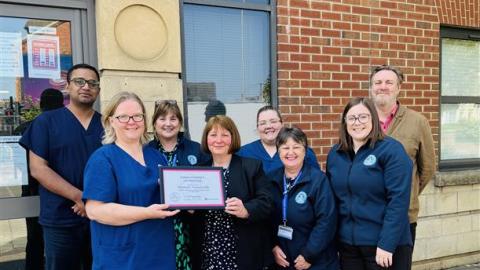
Scams or fraud can take many forms from scam telephone calls to social media tricks and online hacking. If you’re caring for an elderly relative, friend or vulnerable family member it can be worrying to think that they might become the victim of fraud. That worry is very real as it’s estimated that fraud now makes up more than half of all crime in the UK.
In this article we look at some of the most common scams (both nationally and in the North East) warning signs to look out for and where to go for local support if you or someone you care for is targeted.
Common scams to watch out for
Scam Calls – You might get calls from people pretending to be your bank, the police, or other officials, trying to get your money or personal details.
Online Scams – Criminals using fake accounts pretending to be someone or an organisation known to you may message you by email, social media, or chat apps to trick you into sharing personal information or money. Or strangers might try to befriend you online, to find out your personal information in the hope of obtaining money.
Identity Fraud – Criminals may steal your details and use them to take out loans or get documents in your name.
Romance Scams – Someone you meet online through an online dating website/app or social media platform may pretend to genuinely want to be in a relationship with you, but they’re really after your money or personal details.
Sextortion - The practice of extorting money or sexual favours from someone by threatening to reveal evidence of their sexual activity.
Bank Transfer Scams – You may be tricked into moving money from your account, thinking it’s for a good reason when it’s not. E.g. moving money to prevent your account being hacked or making what you believe to be a genuine payment for goods or services.
Investment/Pension Scams – Out of the blue, someone may offer you a “great” investment or pension deal, but it’s really a way to steal your money.
Rogue Traders - Traders who call uninvited to your home to sell goods and services but have no regard for the law. Traders who are invited to provide a service by the victim but exploit the victim by deceiving them into paying for unnecessary and overpriced work.
Employment Fraud – Criminals offering jobs and training which do not exist, requesting personal information, bank details and deposits.

Recent scams/fraud in the North East, including South Tees
The Regional Organised Crime Unit (NEROCU) has recently seen a rise in:
Bank Impersonation calls: Victims receive fake calls from their banks asking for one-time passcodes in order to prevent alleged fraudulent payments going out of their accounts. Sharing the code actually approves a payment to the fraudster.
Winter Fuel Payments Messages: victims get text messages claiming to be from the DWP asking the recipient to click on a link to apply for their winter fuel allowance. The link takes them to a website that looks real but asks for personal and bank details plus a £1 verification fee that will be refunded. But instead, fraudulent transactions appear on the victims account as ‘unknown purchases’.
Andy Hampson, from the North East Regional Organised Crime Unit, says:
“Criminals will contact you on your doorstep, through the post, by telephone and via the Internet. Beware of any unsolicited communication by any means. With every communication you receive, please just stop and think about it, and ask someone else what they think.”
Warning signs
Encourage the person you’re caring for be cautious if:
• They receive any unwanted or unexpected communication
• It seems too good to be true, for example, a holiday that’s much cheaper than you’d expect or someone you don’t know contacts you unexpectedly.
• They’re asked to pay in an unusual way, for example, by iTunes vouchers or through a transfer service like MoneyGram or Western Union.
• They’re asked to provide personal information like passwords or PINs.
• The company doesn’t provide a real postal address.
• They’re asked to transfer money quickly.
• They haven't had written confirmation of what has been agreed.
Helpful resources and local support
Take Five to Stop Fraud is a national campaign and has some great advice including a quick online quiz to test how well you can spot scams Take Five To Stop Fraud | To Stop Fraud
Safer Communities Victim Care and Advice Service has lots of useful information on their website here. And they offer a free, independent and confidential service to anyone affected by crime or antisocial behaviour in the Cleveland area. They help victims cope with the initial impact of what’s happened, provide support through the Criminal Justice System, if required, and provide emotional support.
Sarah James, Community Engagement Co-ordinator for VCAS explains:
“It’s normal to feel overwhelmed after a crime. Our specialist team listens, helps people understand their rights and supports them in regaining control. Having a safe space to talk can make a big difference in moving forward.”
If you or someone you care for has been a victim of crime and would like some support, contact VCAS directly:
Phone: 0303 040 1099
Email: info@vcas.uk
Visit: vcas.uk
NEROCU Newsletter – you can stay updated on fraud and cybercrime trends in the North East by signing up to their regular enewsletter. Email: reccc@durham.police.uk and ask to be added to the distribution list.
Fraudsters rely on confusion, fear and pressure to catch people off guard. As a carer you can play a vital role in helping your cared for person spot the warning signs and say ‘no’ when something doesn’t feel quite right. By talking about it and knowing where to go for help you can protect those you care for (and yourself) and stay one step ahead.




